-
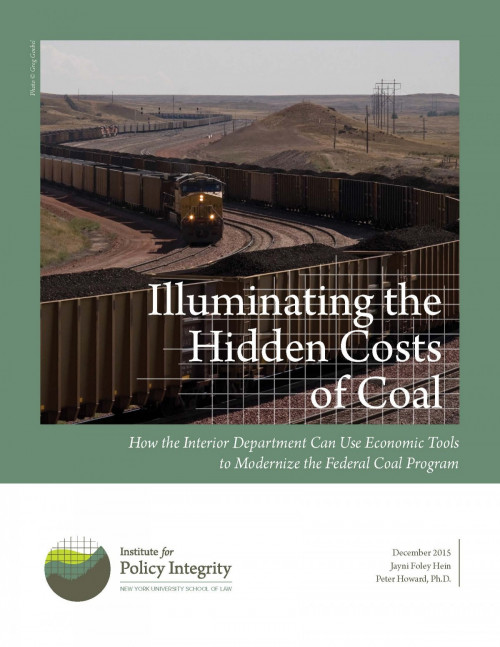
Illuminating the Hidden Costs of Coal
How the Interior Department Can Use Economic Tools to Modernize the Federal Coal Program
This report analyzes the hidden costs of coal production, and suggests updates that the Department of the Interior could make to modernize the federal coal program and earn “fair market value” for taxpayers, as required by law.
-
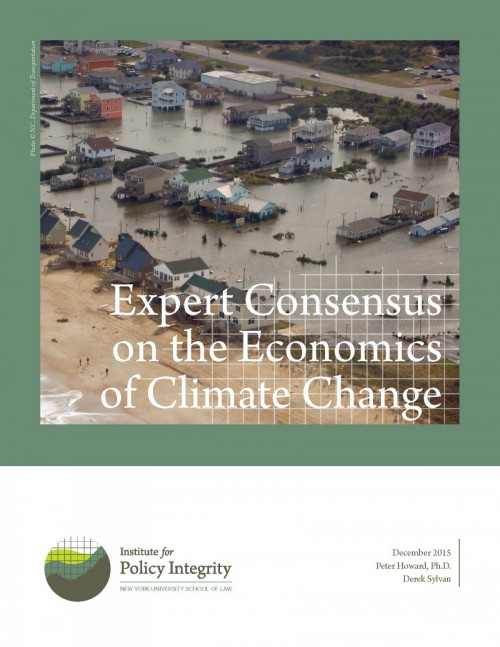
Expert Consensus on the Economics of Climate Change
We surveyed everyone who published an article related to climate change in a highly ranked economics journal over the past 20 years. The survey revealed consensus that climate damages could be more severe and more immediate than previously thought.
-
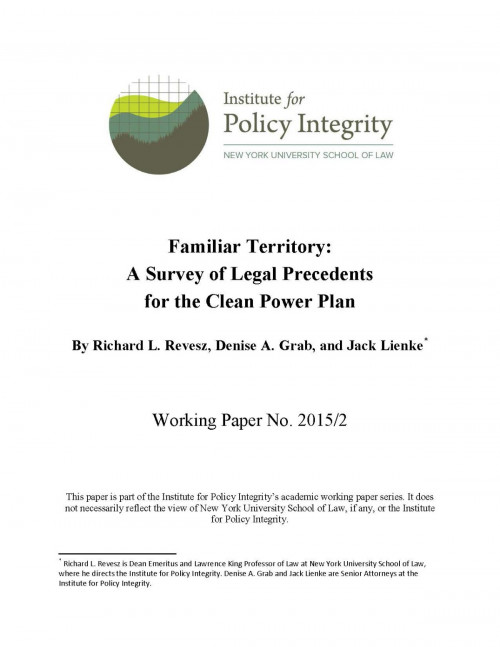
Familiar Territory
A Survey of Legal Precedents for the Clean Power Plan
In this essay, we highlight a wide variety of regulations from the Clean Air Act’s forty-five-year history that provide substantial precedent for the flexible design of the Clean Power Plan.
-
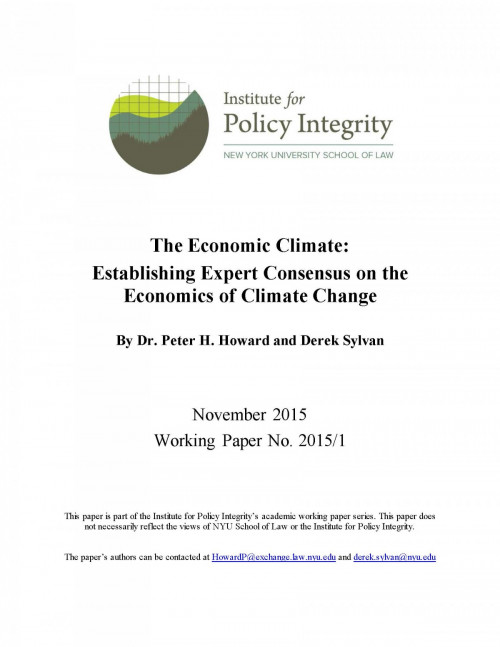
The Economic Climate
Establishing Expert Consensus on the Economics of Climate Change
This working paper offers detailed analysis of our survey of economic experts on climate change issues. We surveyed all those who published an article on climate change in a highly ranked economics journal over the past 20 years. The survey focused on estimated climate impacts and appropriate policy responses, and the results reveal several areas where expert consensus exists on these issues.
-
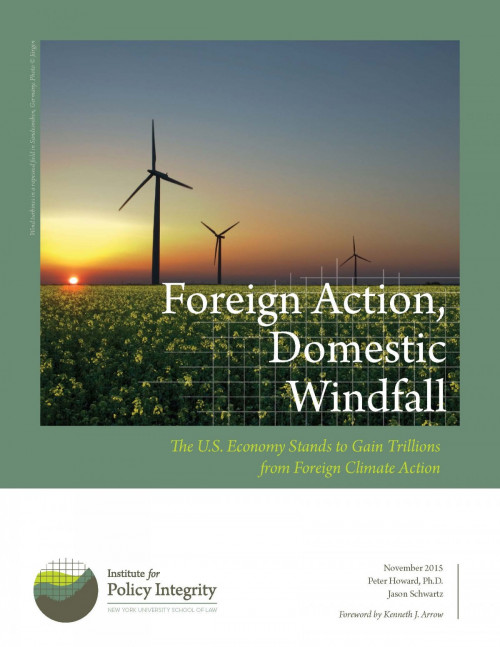
Foreign Action, Domestic Windfall
The U.S. Economy Stands to Gain Trillions from Foreign Climate Action
Global actions on climate change have already helped the United States avoid more than $200 billion in direct economic damage. Trillions of dollars more for the United States are at stake in securing commitments for future emissions reductions from foreign countries.
-
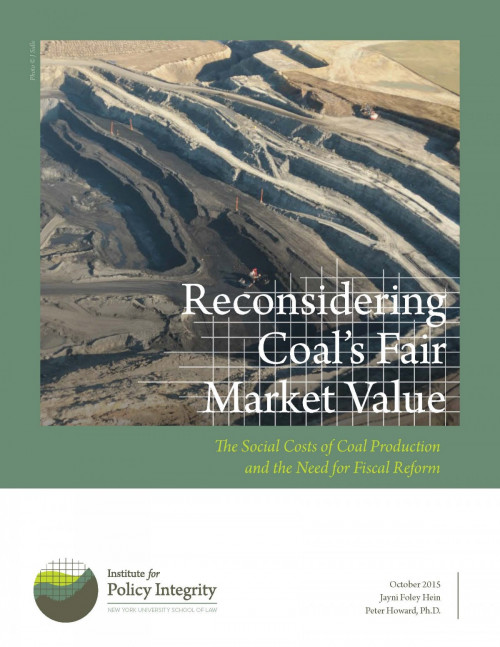
Reconsidering Coal’s Fair Market Value
The Social Costs of Coal Production and the Need for Fiscal Reform
Coal mining on federal lands accounts for more than 40 percent of all coal produced in the United States. But outdated policies, longstanding loopholes, and prevalent environmental externalities keep American taxpayers from receiving their fair share of value from federal coal leases.
-
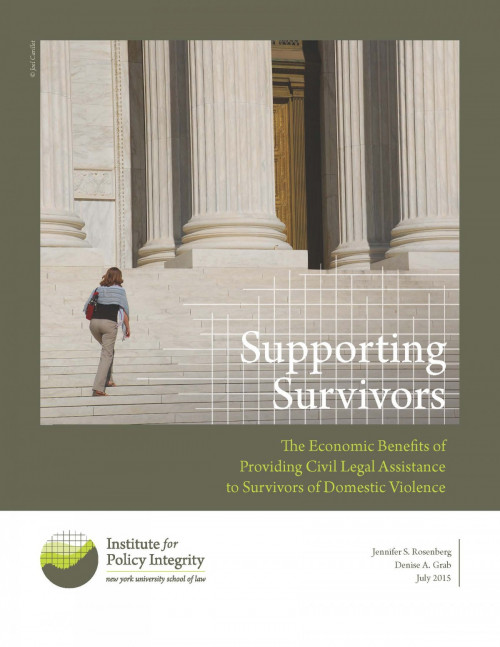
Supporting Survivors
The Economic Benefits of Providing Civil Legal Assistance to Survivors of Domestic Violence
Evidence indicates that the social costs of domestic violence extend far beyond the private costs borne by victims and their immediate families. Supporting Survivors analyzes the social costs of this public health problem and explores civil legal aid efforts, which have been shown to reduce rates of domestic violence by helping victims obtain protective orders and other services.
-
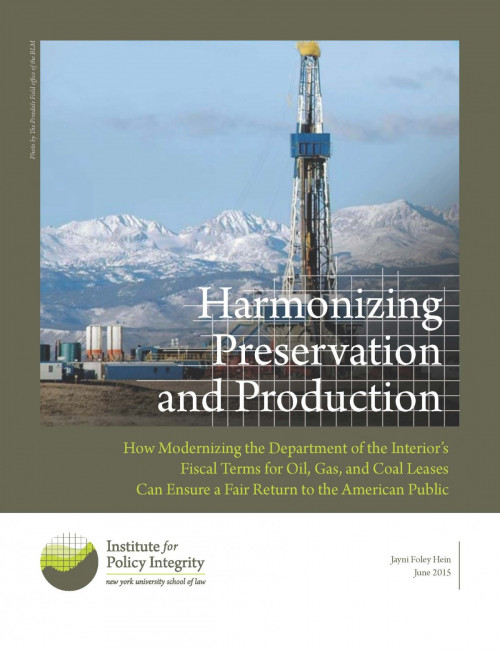
Harmonizing Preservation and Production
How Modernizing the Department of the Interior’s Fiscal Terms for Oil, Gas, and Coal Leases Can Ensure a Fair Return to the American Public
Leasing federal lands for drilling and mining generates a huge amount of revenue for the United States, but the Department of the Interior, which oversees these leases, uses an antiquated fiscal system that deprives taxpayers of hundreds of millions of dollars. Our report analyzes how the fiscal terms for oil, gas, and coal leases could be modernized to ensure a fair return to the American public.
-
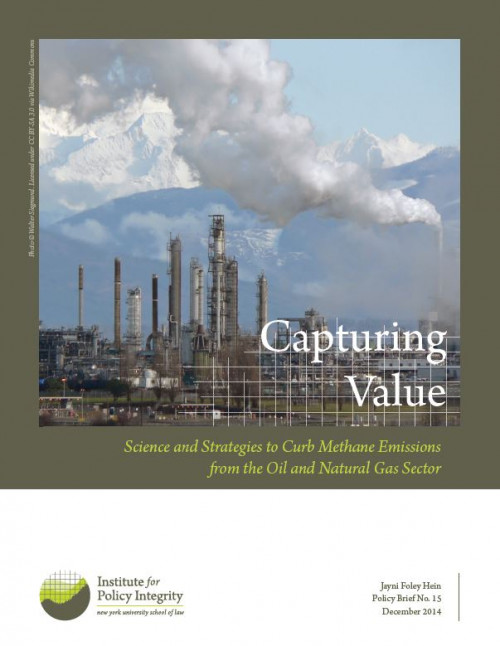
Capturing Value
Science and Strategies to Curb Methane Emissions from the Oil and Natural Gas Sector
Methane, the primary component of natural gas, is a potent climate pollutant up to 86 times more powerful than carbon dioxide on a 20-year timeframe. Currently the United States loses at least 1 to 3 percent of its total natural gas production each year when methane is leaked or vented to the atmosphere. Federal regulations could reduce methane emissions by up to 50 percent at little or no net cost, using available technologies.
-

Interest Groups and Environmental Policy
Inconsistent Positions and Missed Opportunities
This Essay examines and explains the positions of the principal interest groups over the past four decades with respect to the two central questions of environmental policy: the appropriate policy goal and the instrument that should be used to carry out the policy. While environmental groups and industry have largely switched positions on the two central questions of environmental policy, the points at which their positions overlapped were fleeting, and opportunities to make substantial progress in rationalizing the system of environmental regulation have largely been unrealized.
Viewing recent projects in Publications
